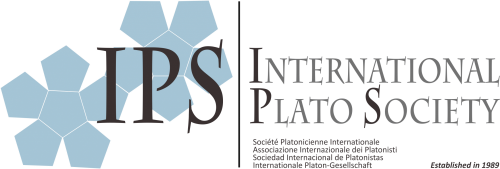Report on “III Coloquio Internacional de Filosofia Griega” in Venezuela.
Between November 11th and 13th this year, the “III Coloquio Internacional de Filosofia Griega: en torno a la República de Platón” was held at the “Universidad Central de Venezuela” (in Caracas), organized by Francisco Bravo. The event was supported by the “Centro de Estudios Clásicos” (founded in 1989) – institutional member of the Internacional Plato Society – and sponsored by the “Faculdad de Humanidades y Educación”, by the area of Philosophy in the “Universidad Central de Venezuela” and by the IPS (with the contribution of the Universities “Simón Bolívar”, “Católica Andrés Bello” and the “Sociedad Venezolana de Estudios Clásicos”).
I was kindly invited by Professor Bravo not only to take part in the “Coloquio” as a conferee, but also to write a brief report about the days we spent in Venezuelan land. The purpose, according to him, was to offer the colleagues from IPS an “exterior” vision of the event, not projected by someone directly linked to its organization. I accepted the task immediately, because of a very simple reason: the success of the meeting and the quality of the conferences developed there are perfectly in harmony with the treatment that, in the role of Professor Bravo’s guest, naturally I would have to give to the report.
Initially, I would like to elucidate the great friendship mood that was soon created between the conferees and the several participants present there. A cordiality climate that seems rooted in the culture of Venezuelan people, when you see how thoughtful they are, and how they treat their visitors. It was in this friendly climate that the thirteen conferees took turns during the five sessions divided into three days of activities. After the official opening made by Prof. Bravo e by Prof. José Ventura, we had the papers of Thomas Robinson (Canada), Francisco Bravo (Venezuela) and Germán Meléndez (Colombia). Afterwards, still in the first day, we had the conferences of Blas Celli (Venezuela) and mine, Dennys Xavier (Brazil). On the second day, we had the papers of Graciela de Pinotti (Argentina), José Ventura (Venezuela), Nowis Navas (Venezuela) and Christian Vassalo, a dear Italian friend – from “Universitá Federico II”. In the last paper sessions, we had then the conferences of Javier Aoiz (Venezuela) and Lorena Rojas (Venezuela). The event organization also honored two young researchers: Lucas Santillán and Gabriela Silva.
The presentations were made in Spanish and the texts were copied so that all the participants could follow in details the proposed interpretation to each conferee. This “logistic” care printed a very positive rhythm to the dynamic of the Colloquium and provided a different quality to the debates (followed closely by an expressive and very unusual number of students and interested people). The texts presented in the Colloquium will be published in a special edition of “Apuntes Filosóficos” magazine, of the Department of Philosophy of UCV.
The event served as a “regional” preparation to our next Meeting in Tokyo, and the debates we had there were definitive for a better adjustment of the contributions that will be sent to the Symposium Organizing Committee of IPS. We thank our colleagues from Venezuela – especially Prof. Francisco Bravo – for his care in the preparation of the Colloquium and for the opportunity to discuss the most essential points in our investigations “en torno a la República de Platón”.
I must highlight, finally, a moment that touched all the people who watched the Colloquium conclusion. The theater group of the “Escuela de Filosofia” from UCV, directed by prof. Julián Martinez, prepared a drama performance of the piece “Los Diarios de Sócrates” of prof. Thomas Robinson. The piece was conceived based on the genius hypothesis of the discovery of a Socrates “diary”, written in his final moments in prison. The young artists-students’ talent of the UCV theater group made us think, even for a short while, about how beautiful it would have been, to really find Socrates personal notes. A play full of creativity, audaciousness, and permeated with a fine irony… typical of Socrates image that came to our days. Prof. Robinson that, for family reasons, had to come back to Toronto before the play presentation, must be proud of the excellent job that group developed (especially if we consider the fact that they had only one and a half month to rehearse). A closing that crowned the success of the event organizing commission and reinforced, inside each of us, the desire to continue investigating Socrates “diaries” , Plato and the others… at least, the way they are registered in the pieces that came to us.
Dennys Garcia Xavier
(Departamento de Filosofia – Universidade Federal de Uberlândia (Brasil)
